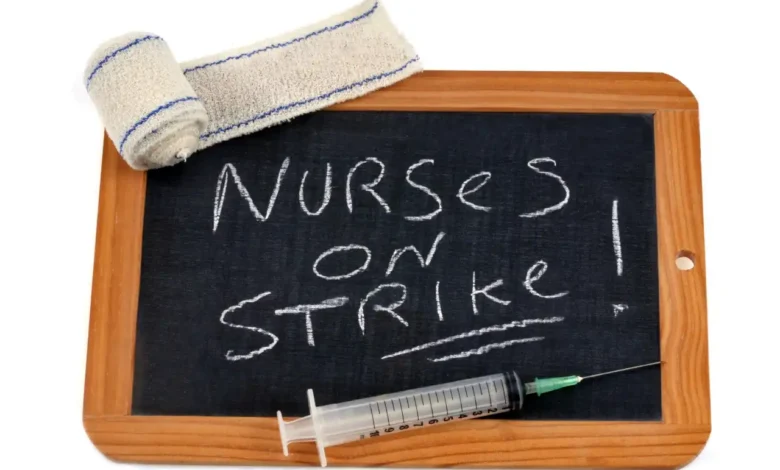How to Find Them & Why They Are Important

Strike nursing jobs are notorious for their high rates of pay. Keep reading to learn more about the need for strike nurses and how much a nurse can earn working on a strike job.
When nurses work too many hours, with too many patients – that is, with an unsafe nurse-to-patient ratio -or too little support and are unable to take breaks when they need them, accidents in hospitals can happen, patient care is delayed, and patient safety is reduced. Overall, nurses get burnout, get stressed, get sick, and often make mistakes that can be fatal to patients’ health. For this reason, nurses strike when there are poor job opportunities, when salaries are low, or when there is a shortage of nurses. Due to the recent Covid-19 pandemic, there is an increasing shortage of nurses, leading to nurses’ strikes in many regions.
For example, in Minnesota, one of the longest and most prominent nurses’ strikes in a long time was announced, affecting most of the hospitals in the region, and the response of the authorities and health centers is to get striking nurses to provide immediate support, with a hefty paycheck.
Additionally, the health science center (HSC) currently has a tremendous shortage of nurses, resulting in insecurity for patients, inability to admit more people, with nurses working double shifts, no breaks, extreme fatigue, and critical and dangerous conditions.
Furthermore, while nurses are protesting, there are still patients in these hospitals who need urgent care from nurses. For this reason, nurses are hired immediately when nursing strikes are confirmed.
There are many questions surrounding strike nursing jobs, for example:
- Are strike nursing jobs safe jobs?
In general, strike nursing jobs are safe. Agencies give nurses a few days’ notice of where they need to go and when. If a shift is canceled, many agencies offer to pay for the job in case the nurse has already begun her journey.
Regarding safety, there are some occasions when the nurses on strike feel very angry with the staff coming in to replace them. Hence, hospitals hire security for all the teams working on strike days, ensuring that there is no physical danger to them. Despite this, it can often be emotionally tricky for striking nurses to hear and see them on strike, so it is necessary to consider this before starting.
- How to find strike nursing jobs?
There are many options for getting a strike nurse job. One of the best ways is through a strike nurse agency that gives nurses a few days’ notices when a strike is coming up so they can prepare and be ready. There are also travel nursing strike jobs listed on the Nursa app, which allows nurses to connect directly with employers for PRN jobs or as travel nurses.
- What are the advantages of strike nursing?
One of the most significant advantages of working as a strike nurse is, without a doubt, the pay. There have been times when strike nursing has been seen to pay as much as $80 per hour when a strike nurse is urgently needed. Taking this position is often a way to help a hospital and patients in need and get two or three weeks of work done in a couple of days.
Another advantage is that hotel or accommodation, as well as transportation and security, are provided by the employer or the agency that arranges the jobs for the strike nurse. Strike nurses have to do their job, get used to a new hospital environment in a few hours, and treat patients with the empathy that distinguishes them.
- How much do strike nurses make?
It depends on how much the employer is willing to pay, but these jobs usually pay very well, and they can earn in a few days the salary they would typically make in weeks.
Why It’s Important to Fill Strike Nursing Jobs
It is essential to be able to cover the shifts of striking nurses. But it is also necessary to follow safe staffing guidelines in each workspace to avoid getting to the point where nurses must go on strike to get what they need. When nurses go on strike, they often get an increase in staffing, a raise in wages, or an improvement in working conditions. On the other hand, if the strike doesn’t work for whatever reason, nurses risk being out of a job or going on strike indefinitely and without pay. If this happens, they can always rely on PRN jobs, which are paid by the hour and on their available schedules. Consequently, they will be able to seek better job opportunities and support patients.







